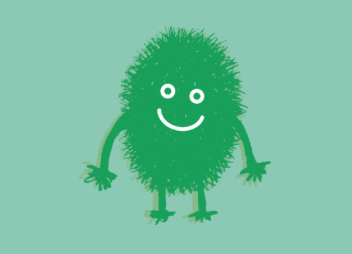“My home is Seamab”
“My home is Seamab. It’s a place for people like me who have had a hard start in life. Seamab is a place where you can grow up better and achieve things beyond your imagination.”
- Seamab pupil
Residential school Seamab’s success shows that thinking outside the box can help children recover from trauma. Seamab CEO Joanna McCreadie tells us more in our members’ spotlight
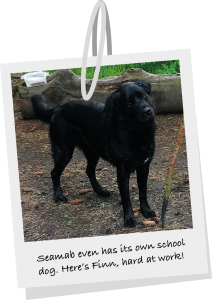
At Seamab we provide care and education for children aged five and older who have experienced significant trauma, abuse and loss. Our children have a wide range of needs and present many challenging behaviours, from aggression and violence to self-harm and poor emotional health. We think it’s our job to gift all the children with relationships and experiences that support them to heal – and to grow into competent and confident adults.
To develop our approach, we started with what we knew about children who have experienced significant trauma. We read about different ways of working and drew upon our own shared practice experience. As a multi-disciplinary team we used ideas from different professional disciplines. We thought we knew what would work and what wouldn’t – but we also decided we were willing to try some new ideas and different ways of working so that we could achieve more for children.
This involved being willing to experiment, take risks, potentially fail and keep learning. As well as this, we enlisted the support of people outside Seamab, which included experts in working with traumatised children and a supportive health and safety advisor.
We also wanted to ‘tell the story’ of our work in a way that was accessible and engaging. To help us with this we worked with a design agency, StudioLR, to develop a new brand for the charity. This resulted in the creation of the Sea Changers, characters who articulate the challenges, feelings and experiences of our children. The new brand also presents a positive story of change, achievement and hope, which is a vital part of our work.
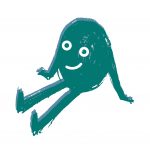
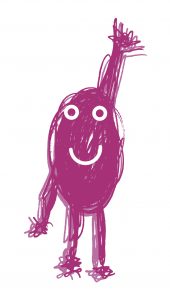
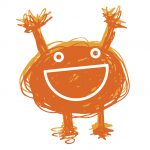
Seamab’s Sea Changers characters representing ‘calm’, ‘hope’, and ‘joy’
All of our children have multiple difficulties but their emotional and mental health is often the most challenging. Each of them struggles with low self-worth, profound shame and regulating their emotions. A child usually arrives with us at Seamab feeling confusion, bewilderment and fear. Every child needs support in learning to identify, talk about and regulate their emotions. All need help to start to feel better about themselves. Some need specific support for particular emotional health issues.
In our approach, we think about children’s individual needs first, and then we think about their needs in the context of the wider group. We believe it’s our responsibility to work out what each child needs and to respond flexibly. This means that we are prepared to make changes in how we deliver our service, as what we are doing to effect change is much more important.
Every child has consistent key adults who are highly skilled in developing warm and nurturing relationships. Using our therapeutic framework, Dyadic Developmental Practice, we accept unconditionally all aspects of the child, and persist in caring for them through whatever challenges the child presents. We use PACE (playfulness, acceptance, curiosity and empathy) as a way of being with children, teaching them that relationships can be a source of safety, love and achievement.
We can only offer children the opportunity to recover from trauma if we have a team of adults who are not only committed, but highly skilled, interesting, playful and fun. Whatever the role of the adult (from teacher to carer to fundraiser), they have to offer a consistent and caring experience, from which children can develop relationships.
Because of this, we invest in developing adult knowledge and skills. Training and development sessions in Dyadic Development Practice are compulsory and we have established a training programme in partnership with Children in Scotland.
We know that children who have experienced significant trauma often have movement, motor and sensory problems. These are often intertwined with their emotional and mental health difficulties. It is also common for our children to have delays in their development.
We therefore create as many opportunities as we can for children to engage in movement and physical experiences that are fun and playful. These are carefully planned and structured when that’s possible - but we’re realists, so at other times we simply respond to a child’s need.
We have a wide range of daily activities that include: climbing trees, mountain biking, playing on stacks of tyres with crash mats underneath, building dens, using the buildings and grounds to make parkour routines and challenges and playing games. Visiting specialists – external experts – deliver yoga, mindfulness and music. Our school dog supports children throughout the day with reading and play.
Activities change with the seasons and as each child grows and develops. All of the children are encouraged to take risks and push themselves. Over time, they gain in esteem and confidence and extend their creativity and their engagement with the world around them. All of this supports development of their interests, intellect and progress in learning.
Daily gains in resilience and emotional health mean that children can participate in increasingly exciting challenges. At Seamab we offer: skiing, white water rafting, surfing, gorge walking, rock climbing, wild camping and more. As each child builds their skills, they can keep progressing, taking part in outdoor adventures and challenges. A few of our recent ‘epic adventures’ have been summiting Scottish mountains, skiing in the Cairngorms and a week-long sailing trip off the Devon coast.
Through these experiences and being held in positive relationships with adults, children start to recover from trauma. They recognise their strengths, celebrate what they can do and learn that what happened to them does not have to define them or their potential.
Last year, one of our children went on the week long sailing trip. He was, it’s fair to say, resistant to going and expecting to fail if he did go. After the trip, and having learnt to sail, he told us: “I learnt I could do anything I wanted if I try.”
Essentially, we tackle the challenges our children have in their social, emotional and intellectual development, and in their mental health through positive relationships and stimulating experiences. We build on the capacity children have to develop and the neuro-plasticity of their brains, to support children in regulating their emotions alongside adults and then succeeding in doing this independently as they make progress.
Most critically, children learn that success is possible, and they can apply this to their learning and all aspects of their lives. As another of our children described it: “Seamab changes your life in a good way. Just like it did to mine.”
